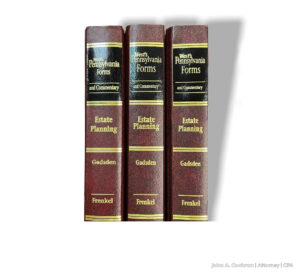As you create an estate plan ( yes, you need one ), consider how your assets will be divided upon your death. Most people don’t consider charitable donations as a way to minimize estate/inheritance taxes. However, did you know that making charitable donations part of your estate plan could lessen the tax burden for your heirs? Read on to learn more.

Why Designate Charitable Donations in Estate Plans?
For example, some people decide they don’t want to leave all their assets to their children or other beneficiaries. Likewise, others don’t have beneficiaries to leave their assets to but want to ensure their estate contributes to a lasting legacy.
For anyone passionate about a specific cause, making charitable donations part of your estate plan may be the right choice for you. Leaving funds or other assets to a designated charity could make the most impact. Tax-exempt charities are set up to maximize the effectiveness of gifts they receive, planned or otherwise.
Any funds given to a recognized public charity are not taxable. While this may decrease the overall amount any named beneficiaries receive, most people appreciate the sentiment during their grieving period. Making charitable donations part of your estate plan may be a good choice.
What Charities Count?
Any charity recognized by the IRS as a 501(c)(3) can receive tax-exempt donations as part of an estate plan. These include charitable organizations, churches and religious organizations, private foundations, and other non-profits.
In addition, depending on the size of your gift, you should contact the charity to inform them of your plans. They may need time to prepare for a large gift (over $10,000). They can also provide basic information to list in the estate plan to streamline the process. If you do name other beneficiaries in your estate plan, you should probably let them know your plans, too. This can minimize hurt feelings and contested wills upon your death.

How to Get Started.
There are a number of ways to plan gift to charities, foundations, or others as part of your estate plan. Estate/inheritance tax rules seem to change every year. So, your estate attorney can work with your designated charities to determine which options make the most sense for everyone. By making your wishes clear in your estate plan, you leave little room for misinterpretation. You can minimize additional work for your heirs and maximize their tax benefits while supporting organizations important to you.
In conclusion, are you not sure how to name a charity in your estate plan? RELAX! Our estate planning experts can walk you through options. Each will fit your unique circumstances. We help with will preparation, trust creation and administration, probate administration, and more. Call us today at 724-216-5180 or complete the online form to schedule a free consultation.
